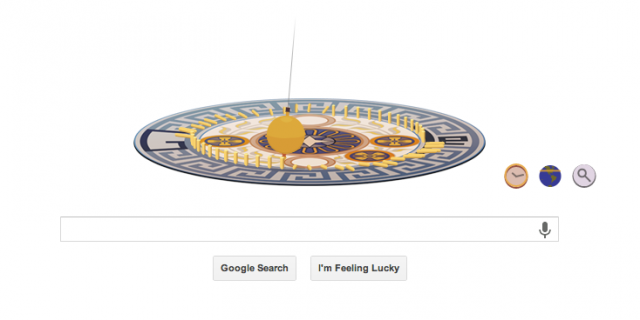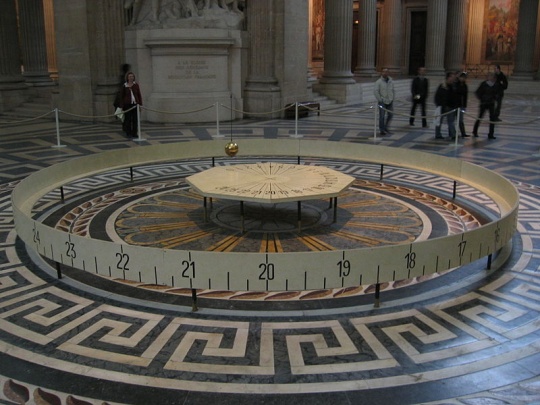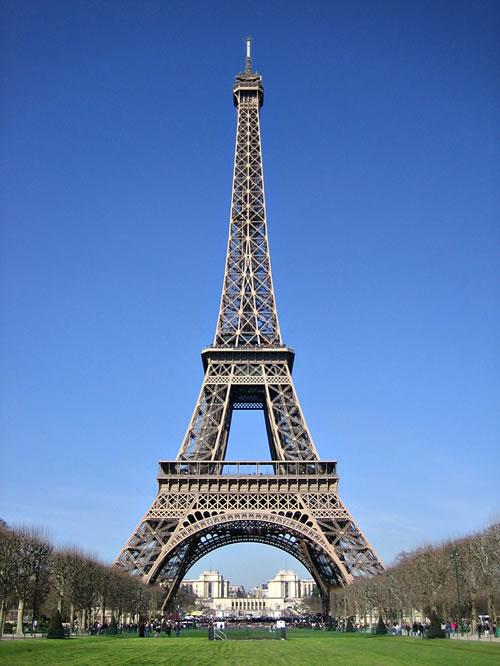Leon Foucault Google Doodle: His 194th Birthday
Leon Foucault Google Doodle

Google celebrated what would have been Leon Foucault’s 194th birthday with an animated doodle on September 18th 2013. Foucault was born in 1819 in Pairs, his father was a publisher. Initially Foucault pursued career in medicine which he later abandoned due to his crippling fear of blood. After his career change, he went on to pursue a career in physics assisting to and collaborating with leading scientists including Hippolyte Fizeau and Alfred Donne.
In 1850 Foucault conducted an experiment which has since being called the Foulcault-Fizeau experiment. The aim of this experiment was to successfully measure the speed of light. The conclusions from this experiment were that light travels at a much slower rate through water than it does through air. This conclusion successfully dismissed Newton’s now outdated and inaccurate corpuscle theory of light. In addition to the field of physics, Foucault also made a number of contributions to the fields of photography and polarization.

Foucault is best known for his pendulum which forms the focus of the interactive doodle. With this pendulum, Foucault was able to successfully demonstrate the earth’s rotation on its axis. During the initial experiment, Foucault hung a pendulum from the Parisian Pantheon’s dome. The colossal pendulum was constructed using a 28kg brass coated lead “bob” and a 67 metre long wire. The swing of the pendulum rotated by 11° each hour. A complete rotation was achieved every 32.7 hours. The original pendulum can still be viewed in the Musée des Arts et Métiers. To this day an exact replica still hangs from the dome of the Pantheon.
The Leon Foucault Google Doodle depicted Foucault’s pendulum surrounded by dominoes. Dominoes are often used with Foucault’s pendulum in order to make the movement easily visible. What is referred to as the “Place of Oscillation” changes based on the pendulum’s latitude. At the North Pole a full clockwise rotation would allegedly take 24 hours as the impact of the earth’s rotation is limited. However the further south the pendulum is placed the greater the influence of the earth’s rotation. This influence causes the pendulum to move in a larger axis depending on the latitudinal position. The influence reaches its peak at the equator, after which point the rotation picks up in an anti-clockwise direction. The Doodlers cleverly took all of these factors into account and viewers were able to play with the settings and watch the subsequent effects on the pendulum. The Leon Foucault Google Doodle can still be viewed and played with by clicking here.
Other contributions which Foucault made include the discovery that the force of rotation which is required for the rotation of a copper disc increases when it is made to rotate with the poles of a magnet situated between its rim, at the same time as which the disc is heated by an eddy current which is induced in the metal itself. Additional discoveries include the invention of the Foucault Polarizer in 1857. The following year he came up with the Foucault knife-edge test which can be used to determine the shape of a reflecting telescope’s mirror.
Foucault died aged just 49 on 11th February 1968. It is thought his death was caused by multiple sclerosis which rapidly developed within him. His contributions to science were recognised by the Parisian authorities, due to this his name joined a list of 72 French scientists, mathematicians and engineers which are engraved into the Eiffel Tower.

